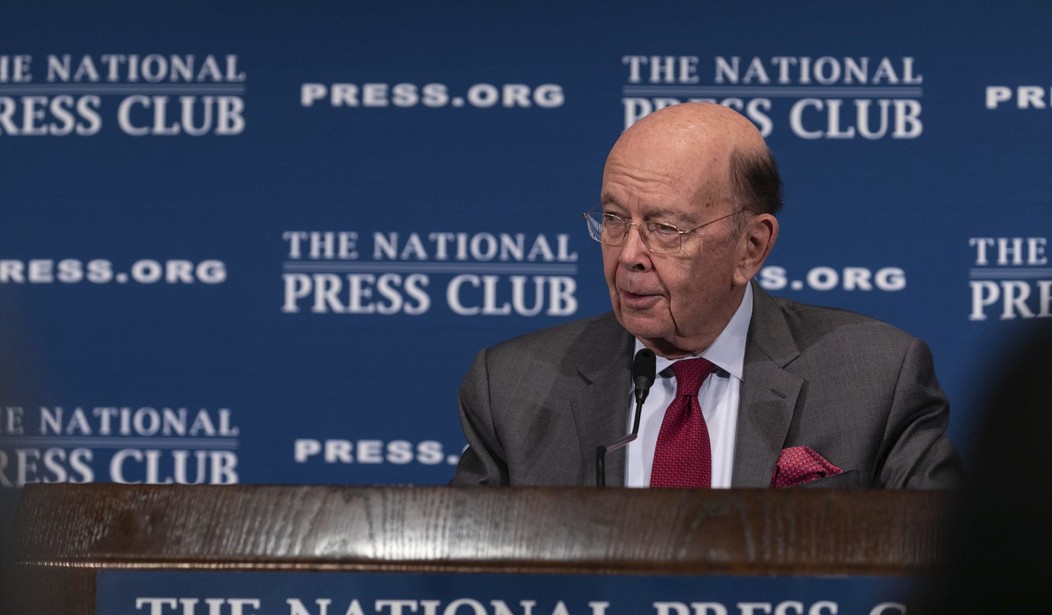WASHINGTON – U.S. Commerce Secretary Wilbur Ross downplayed concerns of a trade war with China but said “a trade tit-for-tat” wouldn’t mortally wound the nation.
“They [the Chinese] are rapidly ramping up their own R&D, but they’re still years behind us in semiconductors and a variety of other products. Respecting our intellectual property, therefore, would slow but not stop their efforts to move their manufacturing up the intellectual value-added scale,” Ross said during an event at the National Press Club on Monday.
As an example, Ross cited the Commerce Department’s “recent enforcement actions against ZTE, China’s second-largest telecom equipment manufacturer.” He said those actions “essentially caused them to cease operations,” which demonstrates “China’s dependence on U.S. technology.”
“Given all of these factors, I hope that we can make a fair deal. But if it doesn’t happen, a trade tit-for-tat will not be economically life-threatening to the United States,” he added.
Ross called the U.S. the “most open and the most-exploited market in the world.”
“Both China and Europe eloquently espouse free-trade rhetoric but in actual practice are far more protectionist than the United States. Our trade policy’s main objective is to make their real-world behavior match their free-trade speeches,” he said.
“China sells us far more than we sell them, and given the lopsided balance, they would run out of targets for tariffs much sooner than we would. Also, their retaliations would negatively impact their own economy as well as ours,” he added. “China buys no products from us if they have cheaper alternatives. Therefore, the tariffs they impose will come at a cost to them.”
Ross continued, “This would be particularly true in agricultural products. China has 20 percent of the world’s population but only 11 percent of the arable land. They cannot feed themselves so they must import to fill the gap, especially as their diets shift toward more protein content.”
Ross was asked to confirm if he is willing to try to get Beijing to “ease” agriculture tariffs.
“Well, we’re opposed to their discriminatory sectors in all sectors, in agriculture, in non-agriculture. We’re also opposed to their non-tariff barriers. They have lots of non-science-based restrictions that essentially are tailored to keep U.S. goods out of China,” he replied. “At one of the meetings where they raised the problem of the so-called mad cow problem, I pointed out to them that both the president and I eat quite a lot of American beef. And that other than the fact that we’re in public office, there are no signs of mental instability as a result.”
Ross attended the Atlantic Council’s Distinguished Leadership Awards ceremony last week where former President George W. Bush, Starbucks Executive Chairman Howard Schultz, NATO Supreme Allied Commander Gen. Curtis M. Scaparrotti and musician Gloria Estefan were honored.
PJM asked Ross if he is concerned about a trade war with China after the tariffs that have been put in place by the Trump administration.
“We’ll see,” Ross responded.
As for the administration’s preferred outcome of the tariffs it has imposed against China, Ross said, “We hope we’ll solve some of the longstanding problems, the trade barriers, the non-tariff barriers, the intellectual property, the forced technology transfers, everything.”
In March, China announced tariffs in response to those that the Trump administration had implemented. In response to the retaliatory tariffs, Ross said at the time, “I think China knows they don’t want to have a trade war with us.”









Join the conversation as a VIP Member